
Lord of the Flies, written by William Golding, is a timeless novel exploring human nature, civilization, and savagery․ Published in 1954, it follows British boys stranded on an island, revealing societal truths through their experiences and conflicts․ The story remains a powerful allegory of human behavior and moral decay, resonating with readers globally․ Its themes of power, fear, and morality continue to spark critical discussions and analyses in literary studies․ The novel’s enduring relevance underscores its importance in understanding human psychology and societal structures․ PDF versions of the book are widely available for readers to explore Golding’s profound insights into humanity’s duality․
Background of the Novel
Lord of the Flies, written by William Golding, was first published in 1954․ Inspired by Golding’s experiences in World War II, the novel explores the darker aspects of human nature through the story of British boys stranded on a remote island․ Initially rejected by several publishers, it gained popularity for its unique narrative and profound themes․ The book has since become a classic in modern literature, offering insights into humanity’s capacity for both good and evil, and remains widely studied and debated today․
William Golding and His Literary Legacy
William Golding was a British author whose groundbreaking novel, Lord of the Flies, catapulted him to literary prominence․ Published in 1954, the book challenged traditional views of human nature and society․ Golding’s unique storytelling and philosophical depth earned him the Nobel Prize in Literature in 1983․ His works, including The Inheritors and Pincher Martin, explore themes of morality, survival, and the duality of human behavior․ Golding’s legacy endures as a master of psychological fiction, leaving an indelible mark on modern literature․
Themes and Symbolism in the Book
Lord of the Flies explores profound themes of human nature, society, and morality․ The island serves as a microcosm of civilization, while the conch shell symbolizes order and democracy․ The beast represents fear and the unknown, driving the boys’ primal instincts․ The plane crash and subsequent events mirror the breakdown of societal norms, revealing inherent savagery․ Golding’s use of symbolism, such as the pig’s head on a stake, underscores the struggle between good and evil, highlighting humanity’s duality․ These themes resonate universally, making the novel a timeless classic in literary studies․
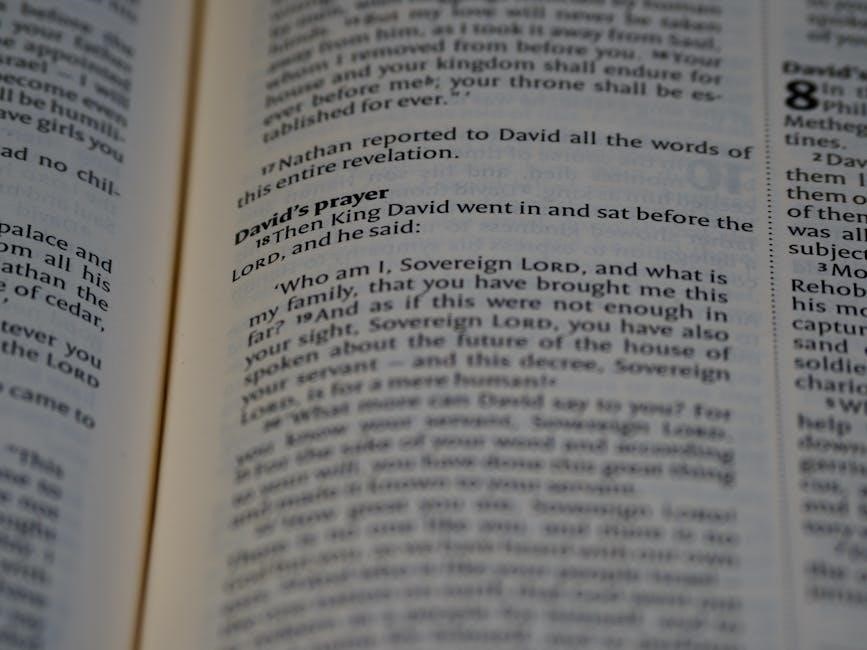
Plot Summary of “Lord of the Flies”
Lord of the Flies by William Golding tells the story of British boys stranded on an island after a plane crash․ They attempt to govern themselves, electing Ralph as leader and using the conch shell for order․ However, fear and power struggles lead to their descent into savagery, exploring themes of human nature, morality, and societal breakdown․
Chapter Breakdown: Key Events
The novel unfolds in 12 chapters, each advancing the boys’ journey from civility to savagery․ Chapter 1 introduces Ralph, Jack, and Piggy, while Chapter 2 highlights their first assembly and the fire’s significance․ Chapter 3 explores hut-building and leadership tensions․ Chapter 4 introduces the “beast,” sparking fear․ Chapter 5 reveals the conch’s fading authority․ Chapter 6 sees Simon uncovering the “beast’s” truth․ Chapter 7 features Jack’s feast and Ralph’s decline․ Chapter 8 ends with Simon’s tragic death․ Chapter 9 escalates with Ralph being hunted․ Chapter 10 concludes with the naval officer’s arrival, restoring order but highlighting moral decay; Each chapter symbolizes societal breakdown and humanity’s duality․
Character Development: Ralph, Jack, and Piggy
Ralph begins as the embodiment of order and civility, leading the boys with the conch symbolizing democracy․ His internal conflict reflects the struggle between societal norms and primal instincts․ Jack’s descent into savagery is marked by his obsession with hunting and power, revealing his true nature․ Piggy, the voice of reason, represents intellect and morality, yet his physical vulnerability and tragic fate underscore the novel’s bleak themes․ Their development highlights the tension between civilization and human nature’s darker aspects․
The Island as a Symbol of Society
The island in Lord of the Flies serves as a microcosm of society, showcasing how human nature unfolds when free from societal constraints․ The boys’ attempts to create order mirror real-world governance, while their eventual descent into chaos reflects the fragility of civilization․ The island’s isolation allows Golding to explore primal instincts, fear, and power dynamics, revealing how quickly societal norms can crumble without structure․ This symbolism underscores the novel’s timeless commentary on humanity and its inherent flaws․

Character Analysis
Ralph, Jack, and Piggy embody contrasting aspects of humanity, exploring leadership, savagery, and reason․ Their dynamics in the PDF highlight societal roles and human nature’s complexity․
Ralph: The Struggle for Civilization
Ralph, the fair-haired protagonist, embodies the struggle for civilization in William Golding’s Lord of the Flies․ As the elected leader, he represents order and democracy, focusing on building shelters and maintaining signal fires for rescue․ Ralph’s internal conflict arises as the group’s behavior becomes more savage, leading to his isolation and disillusionment with their collective descent․ The PDF version of the novel provides a deeper exploration of Ralph’s character, highlighting his efforts to uphold civility amidst chaos․
Jack: The Descent into Savagery
Jack Merridew’s transformation in Lord of the Flies is a chilling portrayal of the descent into savagery․ Initially, Jack is a choir leader and hunter, but his obsession with power and killing animals gradually consumes him․ He becomes the leader of a tribe, embracing primal instincts and rejecting civilization․ The PDF version of the novel highlights how Jack’s actions symbolize humanity’s darker impulses, as he prioritizes hunting and control over rescue and morality, leading to a violent clash with Ralph and the collapse of their society․
Piggy: The Voice of Reason
Piggy, the intelligent and rational character in Lord of the Flies, embodies the voice of reason and morality․ Despite his physical limitations, Piggy advocates for order, logic, and the conch shell’s democratic power․ His glasses symbolize clarity and wisdom, enabling fire and progress․ However, his ideas are often dismissed, reflecting societal biases against intellectualism․ Piggy’s tragic death marks the end of rationality on the island, highlighting the destruction of civilization․ PDF versions of the novel emphasize his pivotal role in exploring humanity’s moral decay․

Themes and Motifs
Lord of the Flies explores themes of human nature, society, and morality through motifs like the beast, symbolizing fear, and the conch shell, representing democracy․ These elements highlight the struggle between civilization and savagery, offering profound insights into human behavior and societal structures․
Human Nature and Society
Lord of the Flies delves into the duality of human nature, revealing how societal norms collapse when civilization fades․ The boys’ descent from order to chaos mirrors the inherent savagery within humanity․ Golding portrays society as a fragile construct, easily dismantled by fear, power struggles, and primal instincts․ The novel critiques human behavior, suggesting that morality is a learned trait, not an innate quality, and that unchecked ambition leads to destruction․ These themes resonate universally, offering insights into human psychology and societal structures․
Fear, Power, and Control
Fear, power, and control are central themes in Lord of the Flies, driving the boys’ actions and societal breakdown․ Fear of the unknown, symbolized by the “beast,” fuels paranoia and submission to authority․ Jack’s lust for power and control over others emerges through hunting and tribal dominance, contrasting with Ralph’s democratic ideals․ The conch shell, a symbol of order, loses its authority as fear and power struggles escalate, highlighting how human nature gravitates toward domination when unchecked․ This dynamic underscores the novel’s exploration of humanity’s darker instincts․
Morality and Ethics
Morality and ethics in Lord of the Flies are central to the novel’s exploration of human nature․ The boys’ initial adherence to moral codes gradually erodes as societal constraints fade․ The death of Piggy and the destruction of the conch symbolize the collapse of ethical standards․ Golding highlights the inherent evil within humanity, as the boys’ actions reveal a primal descent into savagery․ This decline underscores the novel’s timeless commentary on the fragility of morality without societal oversight․
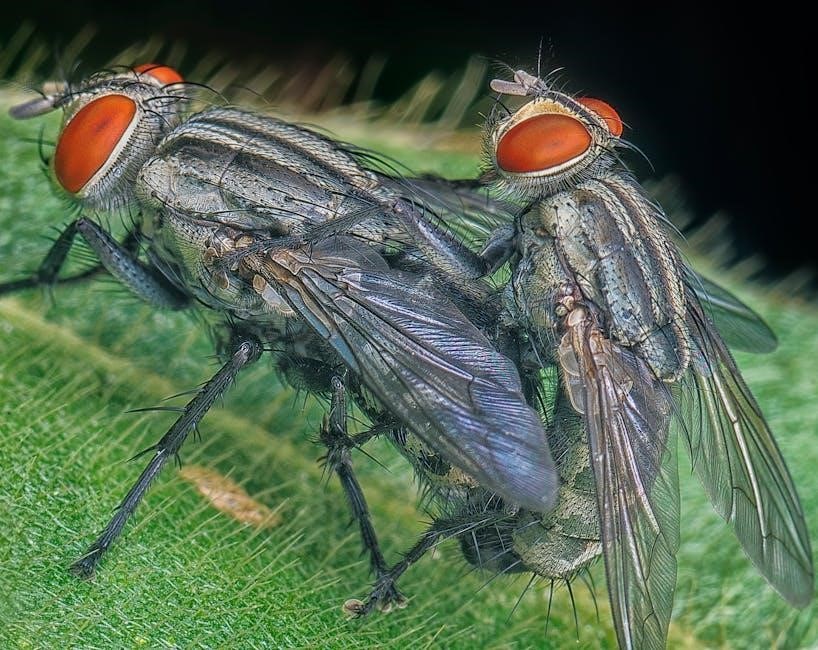
PDF Versions and Downloads
Lord of the Flies is widely available in PDF format, allowing readers to access William Golding’s classic novel conveniently․ Various online sources offer free or paid downloads, ensuring easy accessibility for literary enthusiasts worldwide․
Availability of “Lord of the Flies” in PDF Format
The novel is widely available in PDF format, accessible through various online platforms and eBook stores․ Readers can download it for free or purchase it from reputable sources like Amazon, Google Books, or online libraries․ The PDF version ensures easy readability on devices like smartphones, tablets, and computers․ Additionally, some websites offer the book in EPUB and TXT formats for added convenience․ This accessibility makes Lord of the Flies easily attainable for students, educators, and literary enthusiasts worldwide, fostering deeper engagement with Golding’s timeless narrative․
Free Download Options
Lord of the Flies can be freely downloaded in PDF, EPUB, TXT, and FB2 formats from various online platforms․ Websites like Internet Archive, Project Gutenberg, and Google Books offer the novel for free, ensuring accessibility for readers worldwide․ Additionally, some platforms provide a free study guide by Harold Bloom for deeper analysis․ These options make it easy for students and enthusiasts to explore Golding’s work without cost, fostering a wider readership and engagement with the novel’s themes․
Legality and Safety of PDF Downloads
Downloading Lord of the Flies in PDF format requires caution to ensure legality and safety․ Always use reputable sources like Internet Archive or educational platforms that offer free access under public domain or fair use policies․ Avoid untrusted sites to prevent malware or copyright infringement․ Verify the source’s legitimacy and use antivirus software to scan downloaded files․ Legal downloads respect both intellectual property and personal security, ensuring a safe and ethical reading experience․
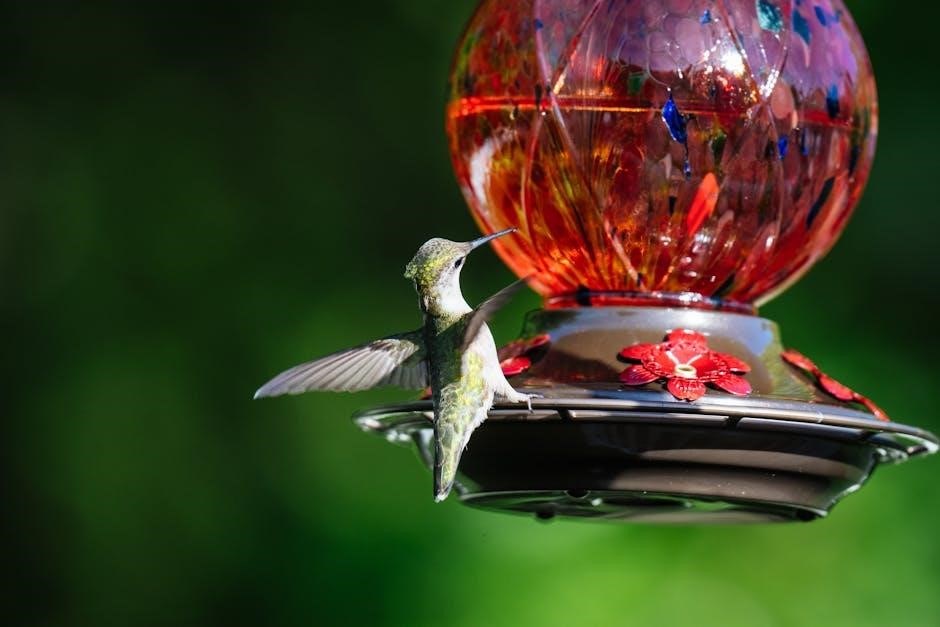
Study Guides and Resources
Lord of the Flies study guides and resources are widely available in PDF formats, offering chapter-by-chapter analyses, essay topics, and critical essays for deeper understanding of William Golding’s novel․
Chapter-by-Chapter Analysis
PDF versions of Lord of the Flies often include detailed chapter-by-chapter analyses, providing insights into key events, character dynamics, and thematic development․ These resources help readers understand the progression of the story, from the initial arrival of the boys on the island to their gradual descent into chaos․ Each chapter is dissected to reveal its significance in the broader narrative․
Analyses typically cover the symbolic meaning of objects like the conch shell and the beast, as well as the evolving relationships between Ralph, Jack, and Piggy․ These guides are invaluable for students and scholars seeking to deepen their understanding of Golding’s exploration of human nature and societal structures․
Essay Topics and Critical Essays
PDF versions of Lord of the Flies often include essay topics and critical essays that explore themes like human nature, morality, and societal structures․ Common topics include the struggle between civilization and savagery, leadership dynamics, and the symbolism of the conch shell․ Critical essays provide in-depth analyses of Golding’s writing style and the novel’s psychological insights․ These resources are invaluable for academic exploration, offering diverse perspectives and interpretations of the text․
Discussion Questions
PDF versions of Lord of the Flies often include discussion questions that delve into the novel’s themes, characters, and symbolism․ These questions encourage readers to reflect on human nature, leadership, and morality, fostering deeper understanding․ They also explore the psychological and societal implications of the boys’ actions, making them ideal for educational settings․ Such resources help readers engage critically with Golding’s work, promoting meaningful conversations and analyses of the text․

Critical Reception
Lord of the Flies initially received mixed reviews in 1954 but gained acclaim over time․ Critics praised its exploration of human nature and societal collapse․ PDF versions often include critical essays analyzing the novel’s themes and Golding’s literary genius, highlighting its enduring relevance in understanding human behavior and morality․
Initial Reception in 1954
Lord of the Flies initially received mixed reviews upon its release in 1954․ While some critics praised its bold exploration of human nature, others found its themes unsettling․ The novel’s raw portrayal of societal collapse and primal instincts challenged conventional narratives, leading to gradual recognition․ Over time, it became a literary classic, with PDF versions now widely available, including critical essays that reflect on its controversial debut and subsequent acclaim as a masterpiece of 20th-century literature․
Modern Interpretations
Lord of the Flies is now widely regarded as a classic, with modern interpretations highlighting its timeless themes of human nature, power, and morality․ Contemporary readers often analyze the novel through feminist, postcolonial, and psychological lenses, revealing new insights into its exploration of civilization and savagery․ The rise of digital formats, including PDFs, has made the book more accessible, encouraging fresh perspectives and discussions among new generations of readers and scholars․
Impact on Literary Studies
Lord of the Flies has profoundly influenced literary studies, offering deep insights into human psychology, societal structures, and moral decay․ Its exploration of power dynamics, fear, and civilization has inspired countless analyses, making it a cornerstone in educational curriculums․ The novel’s universal themes continue to spark discussions in psychological and sociological contexts, solidifying its role as a seminal work in understanding human behavior and societal evolution․ PDF versions have further enhanced its accessibility for modern scholars and readers․
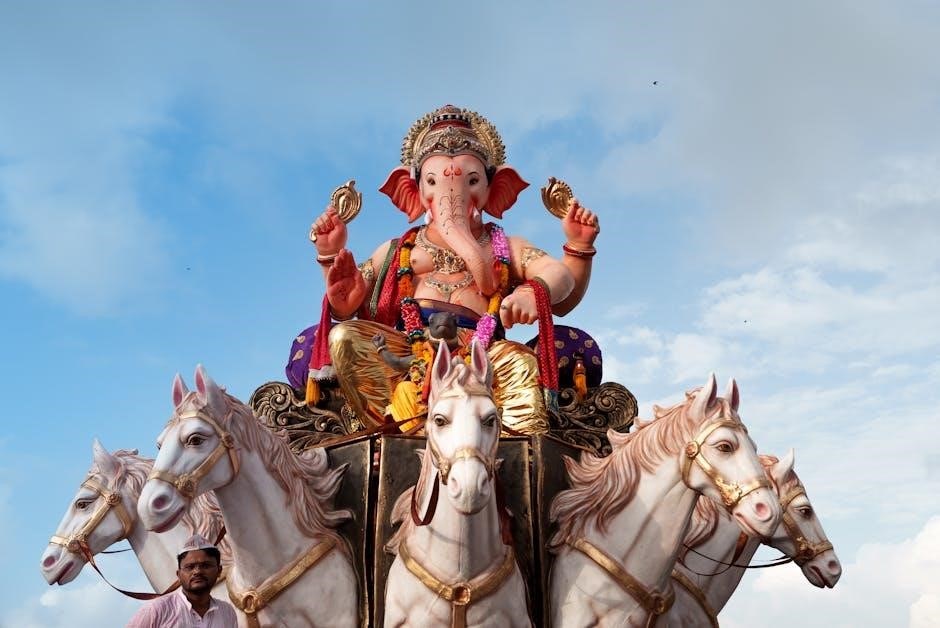
Adaptations and Interpretations
Lord of the Flies has been adapted into films, stage productions, and cultural references, cementing its influence beyond literature․ Peter Brook’s 1963 film and Harry Hook’s 1990 adaptation brought the story to screens, while stage plays reimagined its themes․ Its timeless relevance continues to inspire new interpretations, ensuring its legacy endures across mediums․
Film Adaptations
Lord of the Flies has been adapted into films, with Peter Brook’s 1963 version and Harry Hook’s 1990 adaptation being the most notable․ These films capture the novel’s essence, exploring themes of human nature and societal collapse․ Both adaptations remain faithful to William Golding’s original narrative, offering visual interpretations of the boys’ descent into savagery․ These cinematic renditions have helped maintain the novel’s relevance, introducing its timeless themes to new generations of audiences worldwide, ensuring its enduring impact․
Stage Productions
Lord of the Flies has been adapted into numerous stage productions, bringing William Golding’s gripping narrative to life․ These theatrical interpretations emphasize the novel’s themes of human nature and societal breakdown through dramatic performances․ Notable adaptations, such as those by the Royal Shakespeare Company, use props, choreography, and minimalistic sets to recreate the island setting and the boys’ descent into chaos․ These productions captivate audiences, offering a fresh perspective on Golding’s timeless story and its universal themes, making it accessible to new generations of theatergoers worldwide․
Cultural References
Lord of the Flies has left a lasting impact on popular culture, with references in films, TV shows, and music․ The novel’s themes of survival and human nature inspire works like The Simpsons episodes and Lost storylines․ The phrase “Lord of the Flies” is often used metaphorically to describe chaotic or savage situations․ Its influence extends to academic discussions, where it serves as a metaphor for societal breakdown․ The novel’s iconic imagery and themes continue to resonate across media and culture, ensuring its relevance in modern discourse․
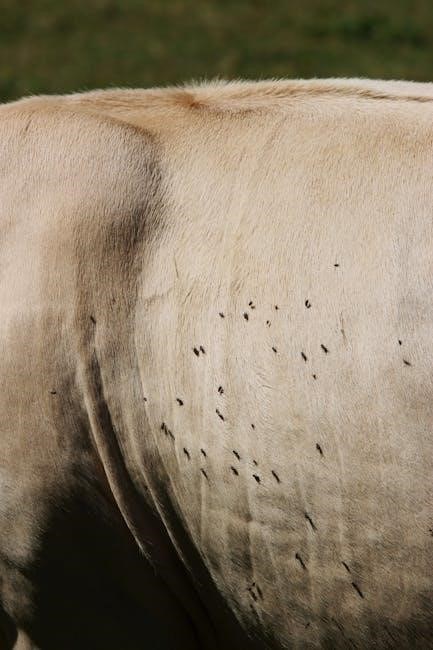
Author’s Perspective
William Golding, a Nobel Prize-winning author, crafted Lord of the Flies to explore humanity’s duality, drawing from his experiences and philosophical views․ His unique writing style blends psychological depth with allegorical storytelling, offering profound insights into human nature and societal structures․
Golding’s Writing Style
William Golding’s writing style in Lord of the Flies is a masterful blend of psychological depth and allegorical storytelling․ His vivid descriptions of the island and its inhabitants create a immersive atmosphere, while his use of symbolism, such as the conch shell and the beast, adds layers of meaning․ Golding’s prose is both poetic and unsettling, reflecting the novel’s exploration of human nature’s darker aspects․ His narrative techniques, including foreshadowing and irony, enhance the story’s tension and moral complexity, making it a compelling read for literary analysis․ The availability of PDF versions of the novel allows readers to delve into Golding’s unique writing style and philosophical insights with ease․
His Views on Humanity
William Golding’s views on humanity are profoundly pessimistic, as reflected in Lord of the Flies․ He portrays humans as inherently flawed, capable of descending into savagery when societal constraints are removed․ Golding’s experiences in World War II deeply influenced his outlook, shaping his belief that civilization is a fragile veneer masking darker instincts․ His work challenges readers to confront the duality of human nature, emphasizing the constant struggle between order and chaos․ The novel’s themes remain timeless, resonating with readers through its exploration of moral ambiguity and societal breakdown․ PDF versions of the book provide accessible insights into Golding’s masterful critique of humanity’s darker tendencies, offering a vivid exploration of human psychology and behavior in extreme conditions․ The availability of these digital formats ensures that Golding’s profound commentary on human nature continues to inspire and unsettle readers worldwide․
Inspiration for the Novel
William Golding’s inspiration for Lord of the Flies stemmed from his deep interest in human nature and societal structures․ His experiences in World War II profoundly shaped his pessimistic view of humanity, highlighting the potential for savagery beneath civilized facades․ Golding also drew inspiration from mythological and biblical themes, weaving symbolic elements into the story․ The novel’s premise of boys stranded on an island was sparked by his fascination with how isolation reveals true human instincts․ PDF versions of the book allow readers to delve into Golding’s exploration of these timeless themes, offering a gripping narrative that continues to captivate audiences globally․
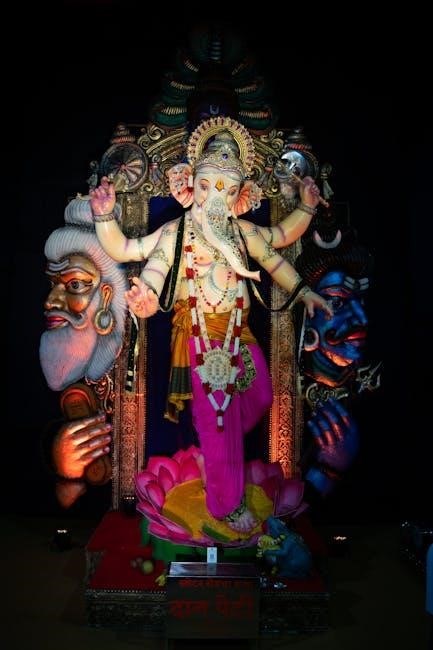
Historical Context
Published in 1954, Lord of the Flies reflects post-WWII anxieties and the Cold War era’s fear of societal collapse․ Golding’s wartime experiences influenced his exploration of human nature and savagery, mirroring the global tension and existential dread of the time․
Post-WWII Influences
Lord of the Flies, published in 1954, was deeply influenced by the post-WWII era․ The novel reflects the widespread anxiety and disillusionment with human nature following the war’s atrocities․ Golding’s experiences in the Royal Navy during WWII shaped his pessimistic view of humanity, evident in the boys’ descent into savagery․ The story’s themes of fear, power, and moral decay resonated with the Cold War era’s fears of societal collapse and the inherent darkness within human beings․
Social and Political Climate
Lord of the Flies reflects the social and political tensions of the 1950s, a period marked by Cold War fears and societal upheaval․ The novel critiques hierarchical structures and the rise of totalitarianism, mirroring post-war anxieties about human behavior under stress․ Golding’s portrayal of the boys’ descent into chaos parallels the era’s concerns about nuclear war and the breakdown of civilized norms, offering a stark commentary on humanity’s inherent flaws and the fragility of social order․
Psychological Insights
Lord of the Flies offers profound psychological insights into human behavior, exploring the duality of human nature․ The novel examines how isolation and fear can erode civility, revealing primal instincts beneath the surface of rationality․ Golding’s portrayal of the boys’ descent into savagery mirrors Freudian concepts of the id, ego, and superego, highlighting the internal and external struggles of maintaining morality in the absence of societal constraints․ This psychological depth underscores the novel’s timeless relevance in understanding human behavior and societal dynamics․
Lord of the Flies remains a gripping exploration of human nature, with its themes of power and morality continuing to resonate․ PDF versions ensure accessibility, allowing readers to engage with Golding’s timeless insights into society and humanity․
Relevance of “Lord of the Flies” Today
Lord of the Flies remains deeply relevant, offering insights into human behavior, group dynamics, and the effects of fear․ Its exploration of power struggles and moral decay resonates in today’s society, where political polarization and social conflicts dominate․ The novel’s themes of leadership, savagery, and the breakdown of order mirror contemporary issues, making it a timeless commentary on humanity․ PDF versions ensure its accessibility, allowing new generations to engage with Golding’s profound warnings about human nature․
Final Thoughts on the Novel
Lord of the Flies, a masterpiece by William Golding, remains a powerful exploration of human nature, society, and morality․ Its timeless themes resonate with readers, offering profound insights into the duality of human behavior․ The novel’s ability to spark critical discussions about leadership, fear, and ethics ensures its enduring relevance․ With PDF versions widely available, the story continues to captivate modern audiences, solidifying its place as a must-read for understanding human psychology and societal structures․
Recommendations for Further Reading
For deeper exploration, readers can access Lord of the Flies in PDF, TXT, and EPUB formats from various online platforms․ Additional resources include study guides, critical essays, and analyses available for free download․ These materials provide insights into themes, characters, and literary significance․ Fans of William Golding may also explore his other works, such as The Inheritors and Pincher Martin, for a broader understanding of his literary style and thematic preoccupations․